Choosing the right wheelchair for an elderly relative is a non-trivial activity. Wheelchairs come in many shapes and sizes, in many different materials, and designed for different uses.
Here are 15 questions for which you need to know answers in order to decide on the right wheelchair.
Is it for indoor use or outdoor use?
If it is for outdoor use, ensure that the back wheels are big. This will ensure that the wheelchair can take the ups and downs of Indian roads and platforms.
Is it foldable?
Most wheelchairs are foldable. Since wheelchairs are stored away for much of the day and through out the night (in the case of seniors), a foldable wheelchair will occupy less space when not in use.
Will it fit into my car boot?
Sometimes, you may want to take the wheelchair with you. In such cases, it is important that the wheelchair folds into a compact size so that it can be easily stowed away in the boot or back seat of the car.
Are the armrests removable?
Removable armrests help in sliding from bed to the wheelchair and back. This can help if the user of the wheelchair is capable of moving sideways, and the bed and wheelchair are at almost the same height.
Are the footrests removable?
Removable footrests ensure that the wheelchair folds into a smaller place as well as help in making the wheelchairs less unwieldy while transporting.
How heavy is the wheelchair?
Sometimes, the person helping the user of the wheelchair may also be a senior citizen. In such cases, it is very important that the helper is able to lift and maneuver the chair. where possible, buy a lighter wheelchair.
How much weight can the wheelchair bear?
A typical wheelchair is certified for about 100 kilos. In the case that the user is much heavier, go for a bariatric range wheelchair.
What are the dimensions of the wheelchair?
In many homes, the doorways and passages can be very narrow. The bathroom doors, in particular, are usually only 2 – 2.5 feet wide in many Indian homes. Before purchasing the wheelchair, ensure that the wheelchair is able to go to all the places you plan to take it to.
Self-propelled or attendant chair?
A self-propelled manual wheelchair will have large wheels while an attendant wheelchair may have smaller wheels and brakes for the attendant to use. Choose depending on usage. If the person using the wheelchair does not have enough strength to propel themselves, go for a wheelchair designed for attendant use.
Is it for transit purposes?
If you are planning to use the wheelchair only during travel (at airports and railway stations, etc), then go for one of the very light-weight, compact aluminium transit wheelchair models.
Is reclining an option?
Some wheelchairs allow for reclining. These usually are larger and take up much more space. If a person is going to be sitting in a wheelchair for long periods, the reclining option may be useful.
Will it rust?
Wheelchairs come in different materials from mild steel to high-grade aluminium and other alloys. If you are planning to take the wheelchair into bathrooms and toilets or expect it to come in contact with the elements, go for an aluminium one. Chrome plated wheelchairs tend to rust after a while.
Motorized or manual?
Unless you are living in a high-end gated community with smooth roads and pavements, there is usually very little value in going for a motorized wheelchair in India as most places are not conducive for motorized wheelchair use. Needless to say, Indian roads are not safe for motorized wheelchairs.
Is a commode attached?
A few models of wheelchairs come with commodes attached, so they act as portable commodes as well as wheelchairs. Under most circumstances, it is preferable to keep the wheelchair and the commode separate for various reasons. However, if you need them together, know that such models are available.
What is the cost?
Wheelchairs, like most other things, come in different price brackets. Choose one that fits your budget.
If you have more doubts, write to us at [email protected]
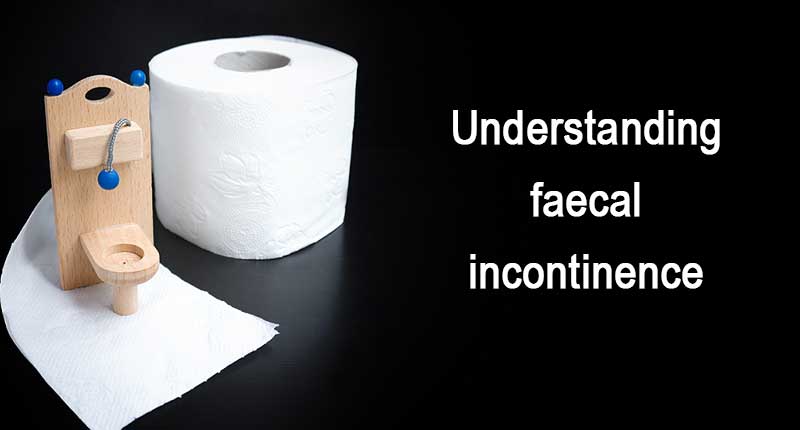 Any form of incontinence, though may not be fatal, can surely rob the life of the affected.
Any form of incontinence, though may not be fatal, can surely rob the life of the affected. When a loved one gets hospitalized, there are Doctors and nurses to look after them while they are under their care. Despite that, the period of hospitalization can be very taxing, both emotionally and physically for the family members.
When a loved one gets hospitalized, there are Doctors and nurses to look after them while they are under their care. Despite that, the period of hospitalization can be very taxing, both emotionally and physically for the family members.
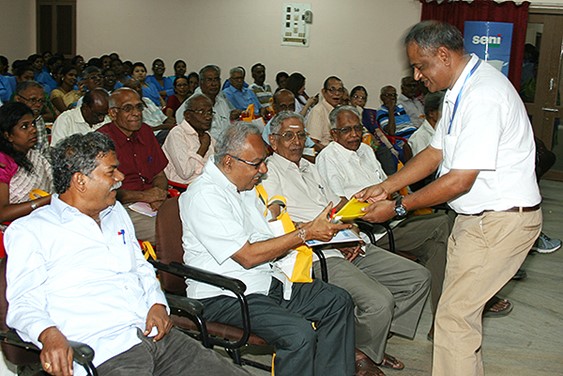
 We were covered by ET yesterday. An brief extract follows. The link to the original article is at the end of the post.
We were covered by ET yesterday. An brief extract follows. The link to the original article is at the end of the post. Diwali is fast approaching. While this is a joyous festival, for many of our elders, this is a time of great trepidation.
Diwali is fast approaching. While this is a joyous festival, for many of our elders, this is a time of great trepidation. Leaving behind instructions to handle incapacities
Leaving behind instructions to handle incapacities
 Kungumam – A Tamil Magazine brings out another magazine/supplement called Thozhi and they recently brought out an Independence Day issue covering many aspects of senior life in India.
Kungumam – A Tamil Magazine brings out another magazine/supplement called Thozhi and they recently brought out an Independence Day issue covering many aspects of senior life in India.
